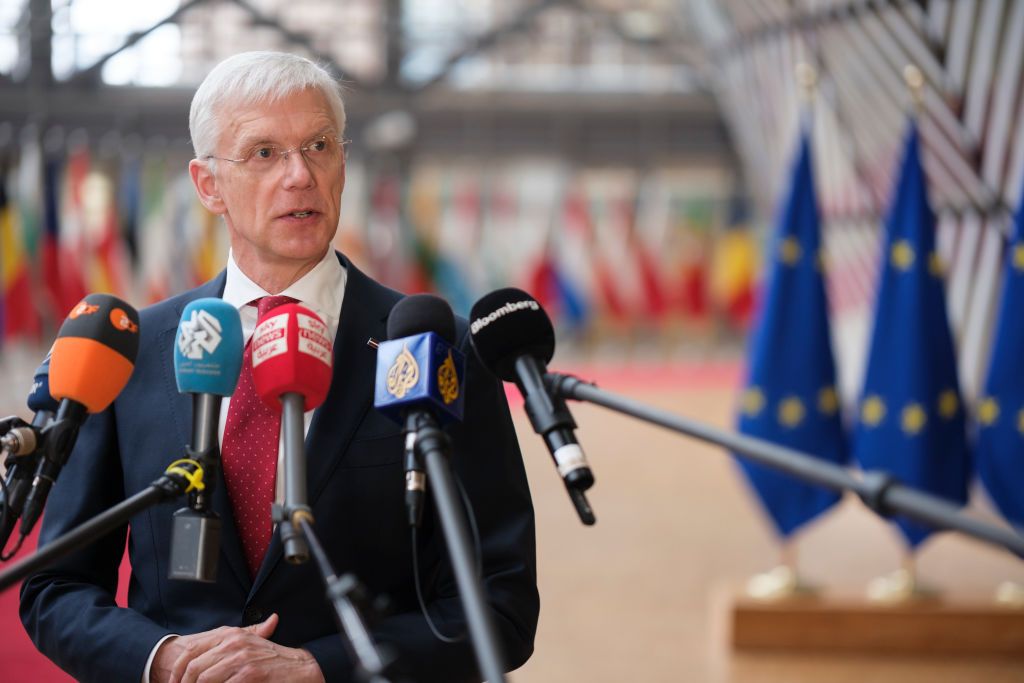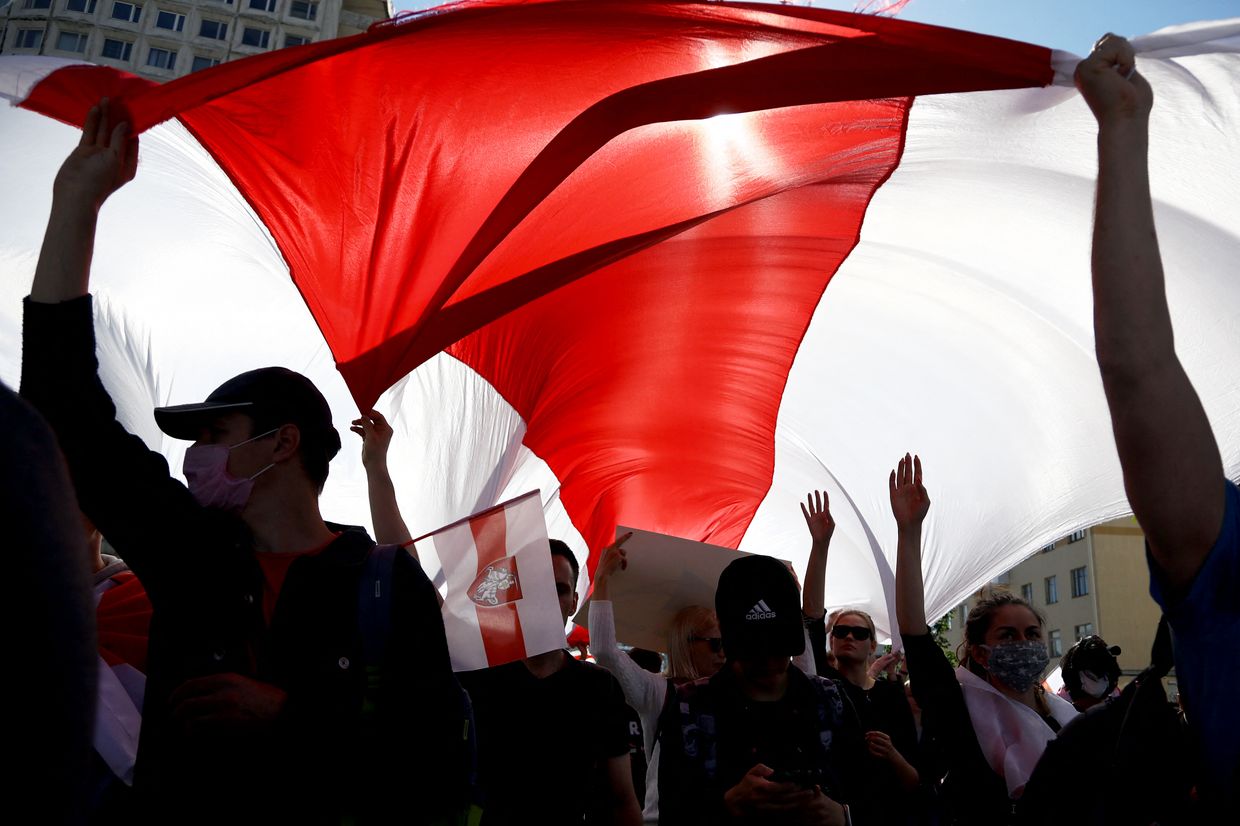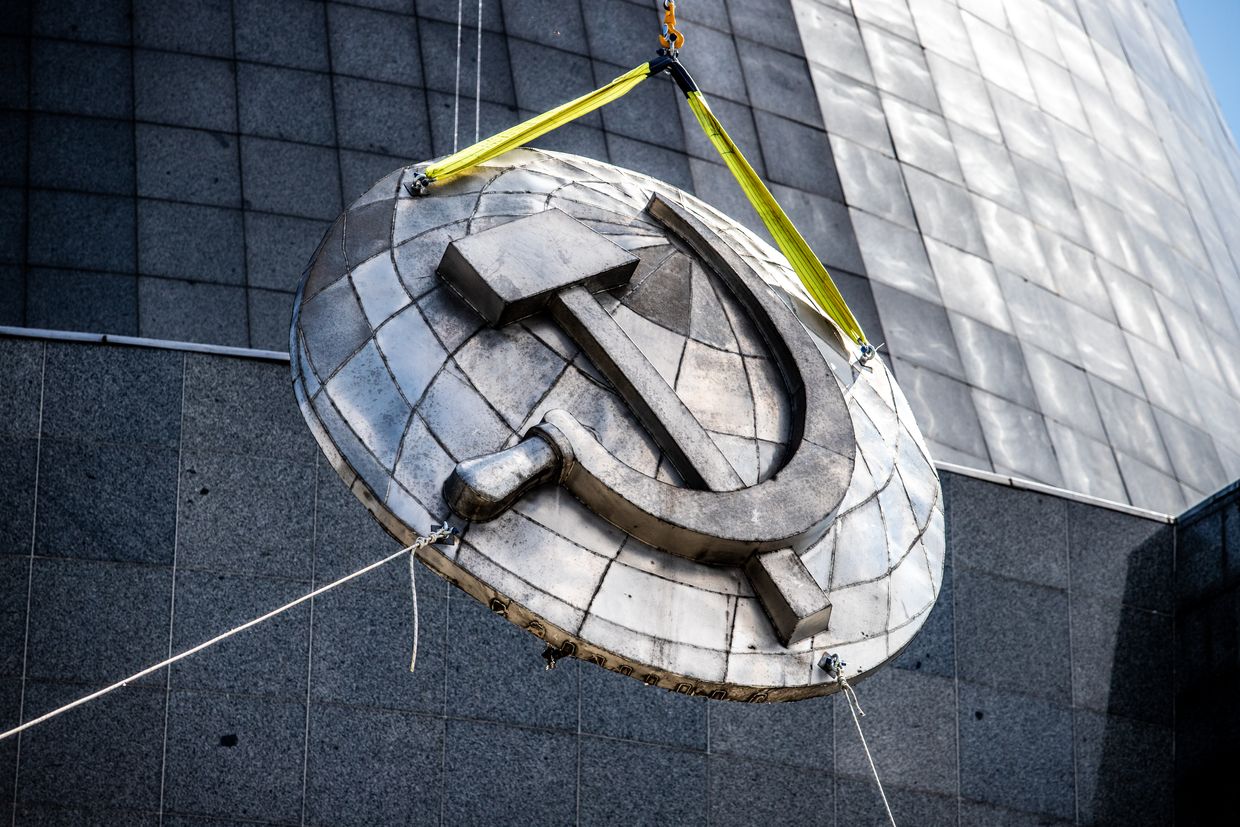Financial Times says EU plans to impose tariffs on Belarusian and Russian grain imports, aiming to appease farmers and some member states.
As Poland cuts financing for exiled Belarusian media, concern rises over the survival of independent Belarusian press.
Four exiled Belarusian activists receive in absentia sentences, dozens more are accused as the practice of in absentia trials surges in Belarus.
Belarus sentences a Ukrainian volunteer to nine years of imprisonment for alleged espionage.
The IOC bans Belarusian and Russian athletes qualified as neutrals from parading at the Paris Olympics opening ceremony.
EU seeks to impose tariffs on Belarusian and Russian grain
The EU is preparing to impose a 95 euro-per-ton duty on Russian and Belarusian grain imports to the bloc, the Financial Times reported on March 19, citing its sources.
In addition, a 50% duty would reportedly be placed on oil seeds and derived products, the FT said. It said introducing tariffs would increase prices by at least 50%, killing demand.
EU imports of cereals, oil seeds, and their derivatives from Russia reached a record 4 million metric tons in 2023, although this is 1% of the total EU consumption and was previously viewed as “negligible,” according to the FT.
The restrictions will not apply to any of the transit produce that passes through the bloc on its way to Africa and Asia.
According to the FT, the European Commission is likely to favor imposing duties over sanctions, as this measure does not require unanimous approval by member states. The duty is to be set at the maximum the World Trade Organization (WTO) allows.
The measure, urged by Poland and Baltic states, would constitute the first restriction on Russian food products since Russia launched its full-scale war on Ukraine on Feb. 24, 2022. The move is also reportedly aimed at placating European farmers, who have been protesting against an influx of cheaper Ukrainian and, increasingly, Russian grain on the market, and the restrictions placed on European producers under the Green Deal – the EU’s plan to tackle climate change.
Latvia was the first European state to temporarily ban Russian and Belarusian agricultural produce imports on its territory, with a bill that the country’s parliament passed on Feb. 22.

Meanwhile, Polish Prime Minister Donald Tusk urged the introduction of the ban across all 27 members of the EU. Speaking in Lithuania on March 4, Tusk said the measure would ensure “the effective protection of the European and Polish agricultural and food markets.”
According to an investigation by Ukrainian online newspaper Ukrainska Pravda published on Feb. 29, Polish trucks are shipping Russian agricultural goods to Poland from Belarus, increasing the volume of these shipments.
The story comes amid widespread protests in Poland against agricultural imports from Ukraine, a country currently facing a full-scale Russian invasion. Russia has received military support from the regime of dictator Alexander Lukashenko of Belarus.
A ban on Russian agricultural exports to the EU was proposed as part of a five-step plan published by the Ukrainian government on Feb. 23 to resolve the problem of Polish farmers’ blockades of the Ukrainian border.
International Press Institute urges Poland to reconsider slashing funding for exiled Belarusian media amid concerns for its survival
The International Press Institute has urged Poland’s Foreign Ministry to reconsider its decision to cut the financing of Belsat, a flagship Belarusian-language broadcaster operating within Poland’s public television service (TVP), amid growing concern about the survival of exiled Belarusian media.
In a statement published on March 19, the International Press Institute (IPI) and the European Centre for Press and Media Freedom (ECPMF) claim the dramatic budget cut would have a “disastrous impact” on the accessibility of independent news for Belarusian and Russian speakers.
Acknowledging that “Poland should not have to carry the financial burden alone for a service that is essential for the security of all Europeans,” the IPI and ECPMF propose to “reconsider and to at least postpone the reduction to provide Belsat time to plan its response and to seek new sources of funds.”
The Polish flagship broadcaster for Belarus, Belsat, lost 47% of its total financing from the Foreign Ministry and Poland’s TVP and had its longtime director, Agnieszka Romaszewska-Guzy, dismissed on March 8.

Foreign Minister Radoslaw Sikorski approved the drastic slashing of the budget for Belarus Belsat from 63 million zloty (around $15 million) to 40 million zloty (roughly $10.1 million) as part of the larger Development Cooperation Plan for 2024, which covers Poland’s Partnerships with Ukraine, Georgia, Moldova, Belarus, and six countries from Africa and the Middle East.
TVP, which co-financed its Belarusian branch in 2023 with 11 million zloty (roughly $2.77 million), is unable to do so in 2024 due to domestic political turmoil. TVP is undergoing liquidation after Polish President Andrzej Duda, a PiS party ally, vetoed the coalition government’s bill securing 3 billion zloty (approx. $754 million) for Poland’s public media.
The government says it is seeking to restore TVP’s impartiality, which it said was undermined during the PiS’ eight-year tenure.
Romaszewska-Guzy said the budget cut would constitute the “de-facto liquidation” of Belsat, the first Belarusian-speaking broadcaster at the time of its launch in 2007. “No institution, not even one that manages money very efficiently, would survive a budget cut of almost 50%,” she said.
With the budget slashed and the deputy chief and co-founder of Belsat, Aliaksandr Dzikavitskiy, stepping in as the new director, Belsat is not alone in being in a precarious state.
The editorial office of exiled Belarusian journalists with Poland’s Radio Wnet has paused its broadcasts in Belarusian, having no confirmation of further financing from Poland’s Foreign Ministry. Other independent media outlets, such as Reform.by and Plan B, have asked their readers to support their work, saying they are on the verge of closure.
Belarus ranks 157th among 180 in the press freedom rating, around 40 media workers and journalists have been imprisoned by the Lukashenko regime for their work, with almost no independent media left in Belarus.
Independent Belarusian outlets abroad are slapped with “extremist” labels, which can also lead to the prosecution of their readers – subscribing to a newsfeed, liking, sharing, or commenting on “extremist content,” as well as donating to “extremist” media, is essentially outlawed and leads to administrative fines and prison terms.
“No moneymaking plans work once you’ve been declared an extremist,” Paval Sviardlou, the editor-in-chief of Belarusian broadcaster Euroradio, told RFE/RL. “Not a single (Belarusian) advertiser will risk his or her business for the sake of advertising with us and supporting independent media.”
Four Belarusian activists each sentenced in absentia to 4 years in prison for alleged ‘election obstruction’
Following in absentia trials, a Belarusian court has handed down four-year prison sentences to four activists for alleged “election obstruction,” the Belarusian Office of the Prosecutor General reported on March 18.
The four are Aleksandr Dabravolski, an advisor to Belarusian opposition leader Sviatlana Tsikhanouskaya, and the leaders of three initiatives that exposed the rigging of the 2020 Belarusian presidential elections – Alena Zhyvahlod, Pavel Liber, and Pavel Marynich.
According to the prosecution, the four activists threatened members of the Central Election Commission and referendum commissions by sending out “at least 11,000 letters.” Prosecutors claimed their actions constituted attempted “election obstruction” during the contested 2022 referendum that amended the Constitution, stripping Belarus of its non-nuclear status and introducing the new extra-governmental body, often described as a refuge for Lukashenko.
The activists initially linked the in absentia cases against them with either the parliamentary elections held on Feb. 25, 2024, or their initiatives to help prove there were large-scale falsifications of the presidential elections held in Belarus in 2020.
Since the beginning of 2024, the number of in absentia proceedings has spiked. According to the Investigative Committee’s Telegram channel, by March 20, some 51 in absentia proceedings had been launched, whereas over two previous years the total number of those put on trial in absentia was 35.
Moreover, on Feb. 23 the Investigative Committee launched in absentia proceedings against nine Belarusians who do not have a notable public profile, signaling the broadening of the implementation of in absentia prosecutions.
In absentia charges can lead to the seizure of the convict’s property in Belarus.
Media: Ukrainian citizen sentenced to 9 years for alleged espionage in Belarus
After a closed-door trial, Homiel Regional Court found Ukrainian citizen Natalia Zakharenko guilty of spying for Ukraine and sentenced her to nine years of imprisonment, the Belarusian service of U.S. broadcaster RFE/RL reported on March 15, citing its sources.
According to RFE/RL, the court ruled that in addition to her imprisonment, Zakharenko’s minibus should be confiscated. Zakharenko’s Belarusian friend, Larysa Krupa, was also prosecuted for not reporting a crime and fined roughly $1,200.
Zakharenko, a Ukrainian national residing in Chernihiv, was arrested in Belarus in July 2023. She had crossed the Polish-Belarusian border to visit her sister in Mazyr and disappeared, only to reappear in custody half a year later as the trial against her opened on Feb. 15, 2024.
Belarusian Human Rights Center Viasna recognizes her as a political prisoner.
Prior to the full-scale invasion of Ukraine, the 46-year-old Zakharenko used to trade at the Homiel market. In 2022, she volunteered to help transport Ukrainian refugees to and from Belarus, and helped them retrieve documents, pets, or any necessities they had left behind. According to the local media in Chernihiv, Zakharenko also helped 30 Ukrainian refugees from the occupied territories leave Belarus.

The exact nature of the spying charges against her remains unknown. Neither the dates of the latest hearings in the case, nor the verdict, can be found in the court’s records. Zakharenko’s relatives in Ukraine reportedly confirmed the passing of the verdict against her.
Despite abstaining from sending its troops to Ukraine, Belarus has been a staunch supporter of Russian aggression against Ukraine. In March 2023, Ihor Kyzym, the Ukrainian ambassador to Belarus at the time, claimed that at least seven Ukrainian citizens had been accused of espionage in Belarus.
Belarusians, Russians ‘not to participate in Olympic opening ceremony,’ says IOC
The International Olympic Committee (IOC) said on March 19 that it would not allow athletes from Russia and Belarus to participate in the opening ceremony of this year’s Paris Olympics.
Following the decision not to invite Russia and Belarus to the Paris Olympics due to their involvement in the full-scale invasion of Ukraine, athletes from the two countries will compete at the event as Individual Neutral Athletes (AINs). They will be banned from competing under their countries’ flags, wearing national colors, or participating in teams for either country.
As of March 20, only seven Belarusian and 12 Russian athletes had qualified as AINs. The IOC estimates that around 22 Belarusians and 36 Russians will be able to qualify for the sporting events in Paris.
James Macleod, director of Olympic Solidarity, NOC Relations and Olympism365 at the IOC, said that neutral athletes would also be able to "experience the event” as observers. Their possible participation in the closing event is set to be decided on later.
Opening ceremony parades have traditionally seen thousands of athletes walk a lap of the host country’s main sporting stadium, but this year's parade will see them sail in boats down the River Seine in Paris.
Ukraine continues to oppose any form of participation of Belarusian and Russian athletes in the games.
“The IOC essentially gave Russia the green light to weaponize the Olympics," Ukrainian Foreign Minister Dmytro Kuleba said on X (Twitter) on Dec. 8 after the IOC decided to allow Belarusian and Russian athletes to compete as neutrals. "(This is) because the Kremlin will use every Russian and Belarusian athlete as a weapon in its propaganda warfare.”
In 2023, amid tensions surrounding the International Olympic Committee’s plans to allow Russian and Belarusian athletes as neutrals, the Belarusian Sports Solidarity Foundation called for the sanctions against Russia and Belarus, and for the ban on the participation of athletes from these countries, to be maintained.














